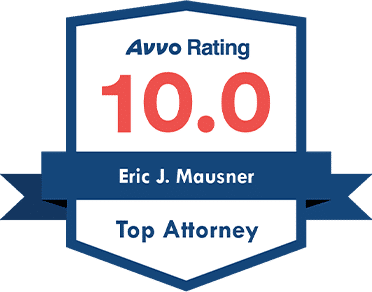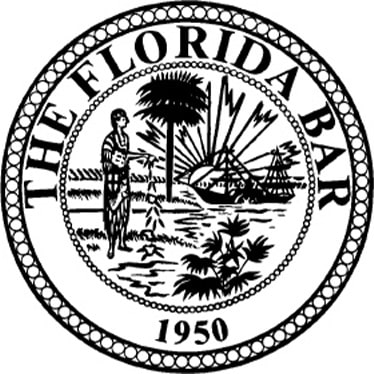
How Does Vehophobia Typically Occur?
Vehophobia is an extreme fear of driving that may entirely prevent a victim from using their vehicle. It most commonly occurs in individuals who have been involved in a traumatic auto accident but can even result from witnessing a crash. What is important to remember is that vehophobia is not “all in your head.” It is a legitimate and debilitating condition that requires professional treatment.
Understanding the signs of vehophobia and the treatment options available can help you take charge of your situation. It is a challenging diagnosis, but many people have successfully overcome it. However, it can take time and potentially expensive treatments. While you focus on your physical and mental recovery after your accident, a knowledgeable Florida personal injury lawyer can ensure that you receive the compensation you are entitled to for all the damages related to your crash.
Contact us today for your free & confidential case review. Our team will help you get the compensation that you deserve.
What Are the Symptoms of Vehophobia?
Vehophobia can cause a wide variety of anxiety symptoms for sufferers whenever they attempt to drive a vehicle, such as:
- Chest pain
- Fast, shallow breathing
- Feeling excessive fear while driving
- Increased heart rate
- Nausea
- Panic attacks
- Severe aversion to driving
- Sweating hands
- Tense muscles
- Trembling hands or limbs
How is Vehophobia Diagnosed?
Your doctor or a licensed psychologist can evaluate your symptoms and determine whether you have vehophobia. In general, you must meet several of the criteria outlined in the Diagnostic and Statistical Manual of Mental Disorders to be diagnosed with a phobia.
Some of these criteria include the following:
- Having an intense, irrational fear that is not proportional to the risks involved with the activity.
- Experiencing sudden, intense fear and anxiety as soon as you are faced with the situation.
- Continuing to experience these symptoms for at least six months.
Are There Other Conditions With Similar Symptoms?
Several phobias relate to travel and cars. Your medical professional may ask questions to pinpoint the exact source of your phobia to help you receive the most effective treatment possible. Proper diagnosis and treatment are critical to your recovery and well-being. Similar conditions you may be facing include:
- Amaxophobia: Individuals with this phobia fear being inside a car. Symptoms can manifest when the sufferer is a passenger in a vehicle and is not involved in the act of driving.
- Hodophobia: This is a general fear of traveling, not just by car, but by any means. The specific triggers and symptoms can vary from person to person, but it can severely impact their ability to get to work, visit family and friends, take vacations, and more.
- Claustrophobia: If a victim experiences being trapped or pinned during an auto accident, they may develop a phobia of enclosed spaces, including cars.
Contact us today for your free & confidential case review. Our team will help you get the compensation that you deserve.
Are Treatments Available to Help You Overcome Your Fear of Driving?
While vehophobia can cause extreme disruption in your life, there is hope. Many different treatments have been shown to successfully help victims overcome their fear of driving so they can get back on the road, but it may take time and diligent effort to reach full recovery.

- Cognitive behavior therapy (CBT): CBT involves therapy sessions where individuals learn to recognize unhelpful or irrational thoughts and behaviors they may have around driving, then develop healthy ways of coping with them. CBT allows patients to learn practical skills that can make the phobia more manageable, and they can build confidence in their ability to face their fears.
- Exposure therapy: During exposure therapy, patients are slowly introduced to the subject of their phobia in a safe, controlled setting to get past their anxiety that is causing avoidance behaviors and stress. This may be done in person or even in a virtual environment.
- Support groups: Speaking to others who have vehophobia or other phobias either online or in person can be therapeutic and is often recommended in addition to other therapies.
- Hypnotherapy: This therapy can help patients safely explore the source of their fears. With the help of a trained hypnotherapist, the patient may be able to address vehophobia triggers related to a traumatic incident and alter their associations, so the fears subside.
- Defensive driving classes: Classes where individuals learn to be safer drivers can help provide confidence and ease fears about experiencing an accident.
- Prescription medications: While they are not a long-term solution, medications that ease anxiety may be used for short periods in conjunction with other treatments to help manage symptoms.
Can You Seek Damages if Your Accident Resulted in Vehophobia?
Vehophobia can be costly for sufferers in many ways. You may face economic losses, such as lost wages and hefty medical expenses for treatment. However, it is often the non-economic losses that are generally classified as pain and suffering, which are even more devastating. The mental anguish you feel when trying to drive, the shame and discomfort of losing your independence due to your inability to drive a vehicle, and missing out on life experiences and travels with family and friends can all take their toll on your mental well-being.
You deserve to be compensated for these life-altering damages. An experienced Miami car accident lawyer will ensure that these losses are figured into your accident settlement. If you have been diagnosed with vehophobia after a crash, contact our helpful law firm today to learn how we can assist you.
Last updated Monday, October 28th, 2024











